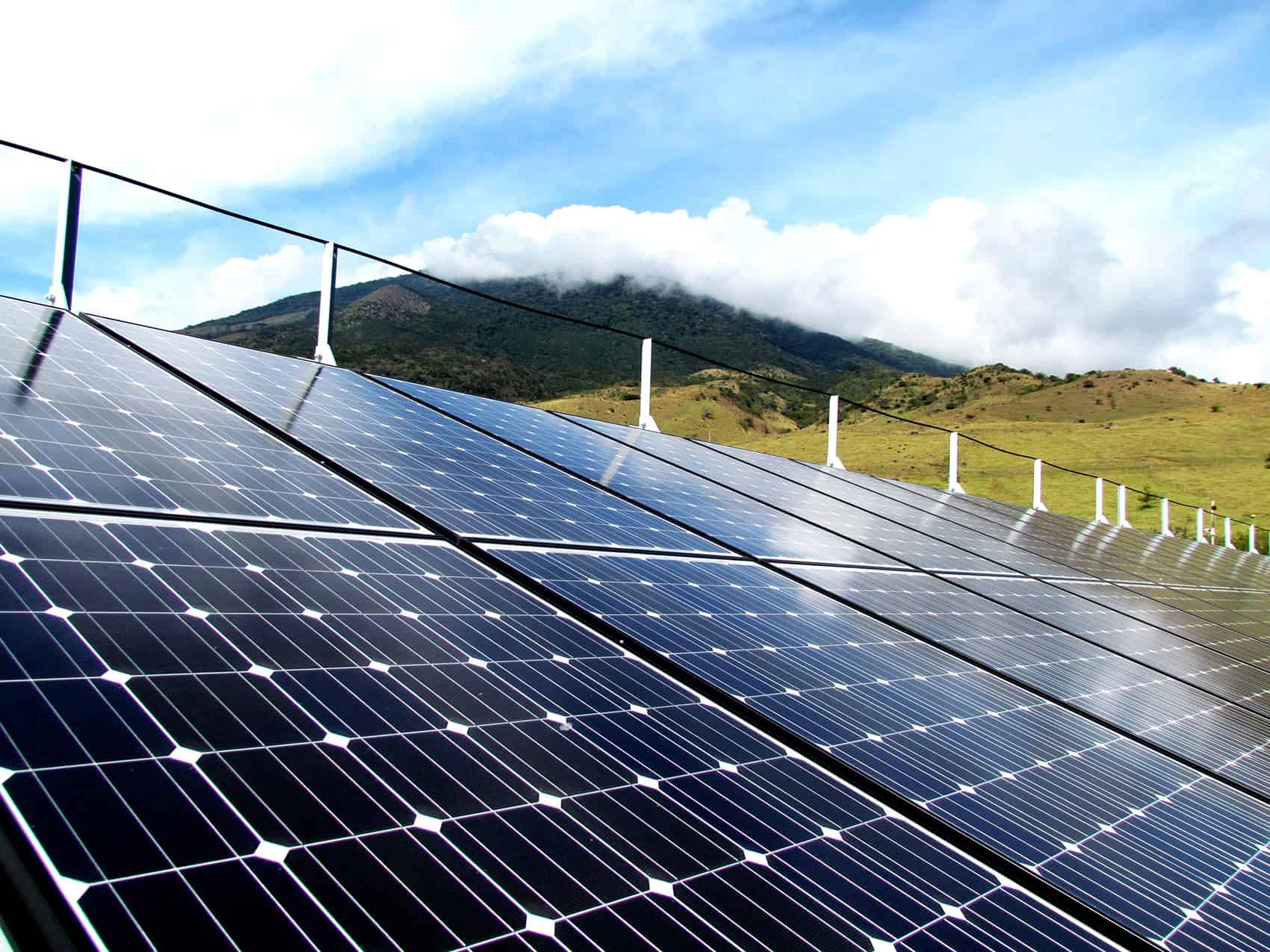Bright sunshine isn’t anything new to Costa Rica, but broad, consumer-based distributed generation solar power soon will be, following the recent publication of an executive decree on the issue.
The Oct. 8 publication in the government newspaper La Gaceta of long-awaited distributed generation regulations finally has opened a legal pathway for residential homes and businesses to produce renewable power while storing excess electricity on the national grid.
Prior to the decree’s signing by President Luis Guillermo Solís on Sept. 14, homeowners who generated their own solar, wind, biomass or hydro power could not send excess electricity back into the national grid to be stored and used later, nor could they pull electricity from public utilities when they were consuming more than they were producing. The new framework will enable more renewable energy alternatives into Costa Rica’s electricity matrix, but some renewable energy proponents worry that hefty fees for connection and metering by the country’s public utilities companies will dampen advantages for those interested in installing renewable energy systems in their homes.
Costa Rica’s path to distributed generation
In 2010, the Costa Rican Electricity Institute, or ICE, launched a pilot program to allow customers to produce their own electricity while still on the grid. The program, which had some 300 participants by its end and was considered highly successful, ran through February of this year. It allowed customers to produce their own electricity and send excess power back into the grid for storage. They could then use that electricity later, when their own systems were not producing enough.
“Everyone loved the pilot program,” said Cham Brownell, chief operations officer of Pura Vida Energy Systems, a company that sells solar systems. “Since then everything has gotten worse, but it is still workable.”
After the pilot program closed public utilities lobbied for a number of restrictions and fees for customers who wanted to produce their own energy, claiming that distributed generation would hurt their bottom line. The proposed regulations required customers producing their own electricity to pay a per-kilowatt-hour rate not only for the electricity they used or stored on the grid, but also for electricity they produced and used. According to solar proponents, the biggest hurdle, however, was a guideline that would have required every household that wanted to sell excess back to the grid to register as a public utility, rendering it nearly impossible for any home to produce its own power without enormous costs.
The future
According to renewable energy advocates, the new regulations published in October do away with many of the problems from previous regulatory proposals, but not everything.
The decree will maintain access and connection fees requiring homeowners to pay for the meters and other equipment required to hook their system up to the grid, and it will charge for each kwh of electricity stored and redeemed from the grid. The Environment Ministry and other regulatory agencies say they no longer plan to charge homeowners for energy they produce and consume themselves without use of the grid, but they still will require homeowners to install two meters – one to measure the electricity used from the grid and another to measure their own total production.
Government officials say the double metering will allow them to monitor how much electricity is being produced by individuals in case a catastrophe wipes out these sources of energy and the national electricity grid needs to compensate. But those who favor distributed generation doubt any sort of natural disaster could have such a devastating effect without also damaging the electricity grid, and they also say there are other ways to monitor electricity use without double metering.
“We don’t understand what purpose double metering could have unless the utilities want to charge us for the energy we produce,” said Jorge Blanco, general secretary of the Costa Rican Association of Solar Energy, a solar energy advocacy organization. “Everything they want to accomplish with double metering can be done through other means, but setting up extra meters is more costly for the customer.”
The new regulations will also maintain costly fees for commercial electricity consumers. Known as demand fees, these cost businesses a certain amount based on the maximum amount of electricity consumed within a 15-minute period for the month. The new regulations would charge commercial consumers the full demand fee regardless of how much electricity they themselves produced during those 15 minutes. Demand fees typically constitute a large chunk of a commercial business’ electricity costs, and without a break on this fee, it eliminates the return on investment for installing a renewable energy system, critics say.
A small step forward
The distributed generation decree will officially go into effect once the country’s regulatory authorities set the access and connection fees. The deadline to set those prices is December.
How quickly generated distribution catches on in Costa Rica will depend on this price tag, say solar companies.
“These fees are the instrument the government will use to either incentivize or slow down generated distribution,” Blanco said. “We’ll see which way it goes.”
Related stories:
Benefits of solar energy on display at 2-day San José expo
Pioneering Costa Rica’s solar push in the Central Valley: Alajuela’s Llobet and Sons






